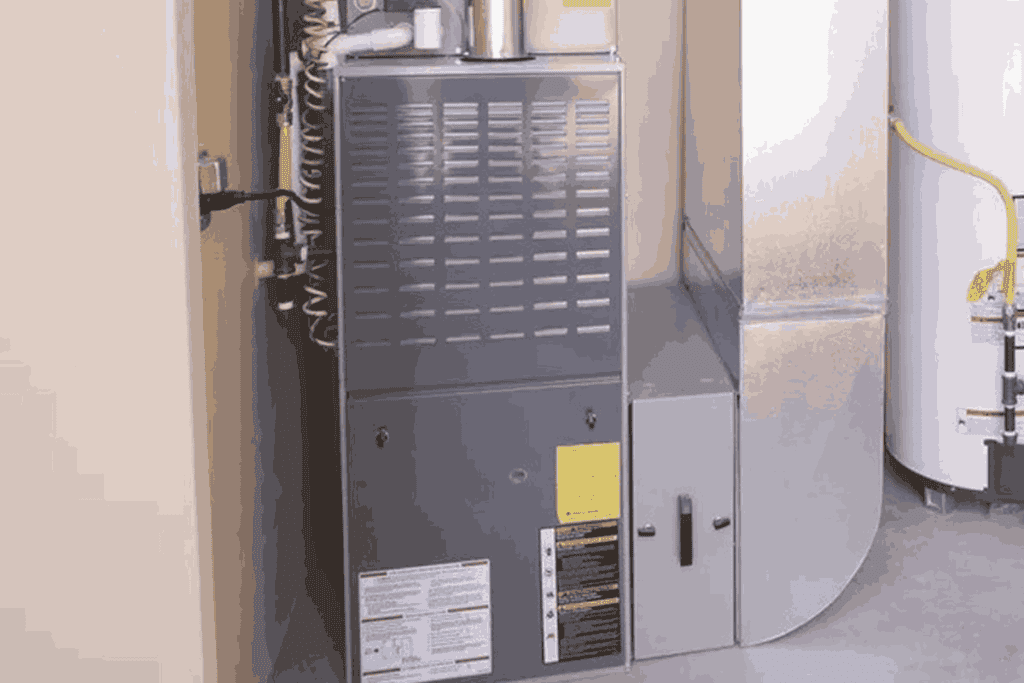Your heating and cooling system, which works hard to keep your home comfy, might occasionally surprise you with a strange smell – something like burning. In this blog post, we understand the intricacies of heating, ventilation, and air conditioning. We will explore an issue that may catch you off guard – the elusive burning smell from your HVAC system. Understanding the reasons behind the burning smell, the types it can manifest, and effective solutions is essential for ensuring the safety, efficiency, and longevity of your HVAC system.
Knowing about common heating and air conditioning problems is the first step toward ensuring the longevity and efficiency of your HVAC system. Below are 10 common problems that your HVAC system might face.
One of the most common issues affecting HVAC systems is dirty or clogged air filters. Over time, filters accumulate dust and debris, reducing airflow and efficiency. Regularly checking and replacing filters is a simple yet crucial maintenance task that can prevent more significant problems down the line.
A malfunctioning thermostat can lead to temperature inconsistencies and inefficient heating or cooling. Issues may range from incorrect temperature readings to complete thermostat failure. Regularly calibrating and checking your thermostat can help ensure accurate temperature control.
This can result from the overheating of plastic components or the burning of foreign objects within the system. It’s crucial to identify and resolve the source of this smell to prevent damage to the HVAC system.
Burning Rubber Smell caused by belts slipping or becoming misaligned within the HVAC system. If left unaddressed, this issue can lead to further damage and potentially costly repairs.
Over time, dust can accumulate on the heating elements of your HVAC system, especially if it’s been dormant for a while. When the system restarts, the burning smell is often attributed to the dust burning off.
Restricted airflow due to clogged air filters can cause overheating of the system components, leading to a burning smell. Regularly changing or cleaning air filters is crucial for preventing this issue.
Faulty wiring, loose connections, or electrical components nearing the end of their lifespan can generate a burning odor when they overheat. Addressing these electrical issues promptly can prevent potential hazards and ensure the safe operation of your HVAC system.
Restricted airflow due to clogged air filters can cause overheating of the system components, leading to a burning smell. Regularly changing or cleaning air filters is crucial for preventing this issue.
Sometimes, objects like plastic, insulation, or debris can accidentally find their way into the HVAC system, leading to burning odors when they come into contact with heating elements.
Restricted airflow due to clogged air filters can cause overheating of the system components, leading to a burning smell. Regularly changing or cleaning air filters is crucial for preventing this issue.
While a burning smell may not always indicate a severe problem, ignoring it can lead to potential issues:
Ignoring the burning smell may result in more severe issues, ultimately leading to a breakdown of the HVAC system. If the underlying cause of the burning smell is not addressed promptly, it can escalate into more significant problems that affect the functionality of the entire system. This could leave you without heating or cooling when you need it most, especially during extreme weather conditions.
Ignoring the burning smell may result in more severe issues, ultimately leading to a breakdown of the HVAC system. If the underlying cause of the burning smell is not addressed promptly, it can escalate into more significant problems that affect the functionality of the entire system. This could leave you without heating or cooling when you need it most, especially during extreme weather conditions.
In cases of electrical or severe mechanical issues, there’s a risk of a fire hazard associated with the burning smell. Electrical components within the HVAC system can become overheated, potentially leading to sparks or combustion if left unattended. Additionally, if there are mechanical issues causing friction or overheating, combustible materials within the system could ignite, posing a significant fire risk. Addressing the burning smell promptly is crucial to mitigate the risk of a fire hazard and ensure the safety of your home and family.
Addressing the burning smell from your HVAC system requires a systematic approach to identify and resolve the root cause:
Schedule routine maintenance to clean heating elements, inspect and replace air filters, and identify any potential issues before they escalate.
Ensure regular replacement or cleaning of air filters to maintain proper airflow and prevent overheating.
If you’re unsure about the source of the burning smell, enlist the services of HVAC professionals for a thorough inspection. They can identify and address issues such as faulty wiring, worn-out components, or mechanical problems.

If the burning smell is associated with a rubbery odor, it may indicate issues with belts. Prompt replacement can prevent further damage.
Ensure there are no foreign objects or debris within the HVAC system. Regularly inspect vents and openings for any obstructions.
Address any electrical issues promptly. This may involve tightening loose connections, replacing faulty wiring, or fixing problematic components.
The burning smell from your HVAC system is a warning sign that should not be ignored. Whether it’s a minor issue like dust burning off or a more serious problem like electrical issues, addressing it promptly is key to ensuring the safety and efficiency of your HVAC system.
Contact All Seasons Home HVAC for professional residential HVAC Contractor inspection and comprehensive maintenance services. Our skilled technicians will identify the root cause, provide effective solutions, and ensure your HVAC system operates efficiently and safely. Your comfort and safety are our top priorities. Schedule a consultation from All Seasons Home HVAC!
Schedule a free quote to learn how you can get a $10,000 rebate and 0% interest financing.
Start your savings today!